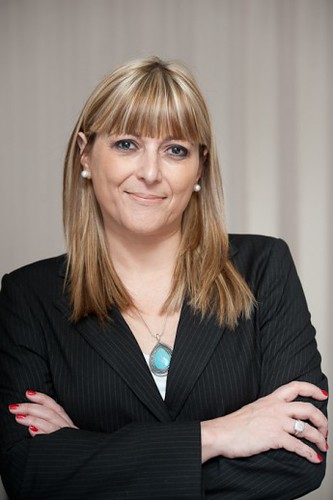
Each day there are more digital tools available to help journalists with their work, but it’s not always easy to find them or figure out which are the most useful.
Responding to the high demand for training in this field, the Knight Center for Journalism in the Americas will offer from Oct. 21 to Nov. 24 the course in Spanish, “Digital Tools for Journalists: from web to mobile.” The course will be taught by renowned Argentine journalist and data journalism expert Sandra Crucianelli, who will base her class on the newest edition of her book “Digital Tools.” Applications are now closed.
“This is one of the topics that journalists in Latin America ask us about the most: which digital tools are the best to help reporters and editors on their work,” said Professor Rosental Alves, founder and director of the Knight Center. “We are very happy having Sandra Crucianelli back with a new generation of digital tools that journalists will be able to use not only on their computers, but also through their mobile devices.”
The five-week course will focus on the tools that have become available in the last two years to help journalists with their work and digital safety. Students who apply are accepted to the course will have to pay a $90 fee online with a credit card.

“The rise of smartphones and tablets has made it necessary to revise traditional tools and introduce new ones so that reporters have access to a more complete toolkit when they report on stories or prepare investigative pieces,” Crucianelli said.
On this course students will learn how to improve their safety online, find out about new search engines, access new data management platforms, explore data bases, learn how news apps work, optimize their social media presence and discover new ways to manage audio and video, as well as images and other multimedia content.
“Digital Tools for Journalists: from web to mobile” will be divided into weekly modules containing multimedia presentations and links to online resources. Most of the course activities can be followed in the days and times most appropriate for each student. Exercises, online discussions and additional assignments will also be part of the curriculum. Participants can expect to spend 6-8 hours per week on the course.
Sandra Crucianelli is an award-winning journalist who has specialized in investigative and precision journalism, with an emphasis in digital sources and database journalism. Since 2004 she has taught several courses through the Knight Center’s Distance Learning platform. Her last course with the Knight Center was the successful Massive Open Online Course (or MOOC) in Spanish “Introduction to Data Journalism,” which attracted around 4,000 students from 60 countries.
She is also a member of the advising council for the Center for Digital Journalism at the University of Guadalajara, Mexico, an instructor at the Media Center in Florida International University (FIU) and founder of Solo Local.Info, a project in hyperlocal digital journalism. She is the author of the book “eDigital Tools for Journalists,” published in Spanish and Portuguese by the Knight Center. She is a Knight International Journalism Fellow that has researched the journalism applications of open data in the last two years.
Crucianelli will teach the course through the Knight Center’s Distance Learning platform, which has benefited more than 7,000 students in Latin America and the Caribbean since its creation in Fall 2003. Students will receive a participation certificate from the Knight Center upon completing the course.
The Knight Center for Journalism in the Americas was created in 2002 by Professor Rosental Alves, who holds the Knight Chair in Journalism and the UNESCO Chair in Communication at the University of Texas at Austin School of Journalism. Launched with major, multi-year grants from the John S. and James L. Knight Foundation, the Center also has received grants from Open Society Foundations and other donors. The Knight Center also has been sustained with support from the University of Texas at Austin’s College of Communication, modest foundation grants and the public.

Knight Center for Journalism in the Americas
300 West Dean Keeton
Room 3.212
Austin, TX, 78712
Phone: 512-471-1391
Email: journalismcourses@austin.utexas.edu